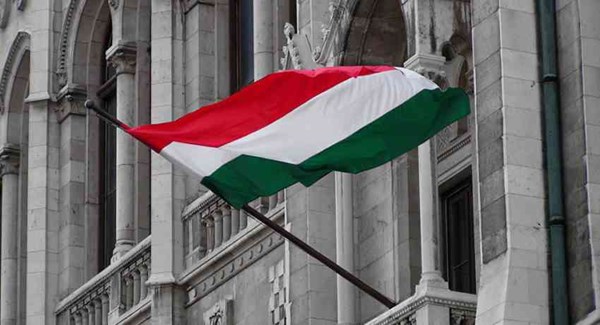Hungary's covert intelligence operations in Ukraine: espionage scandal threatens fragile ties with Kyiv
For the first time in Ukraine's history, the Security Service of Ukraine (SBU) has dismantled a Hungarian military intelligence spy network operating in Zakarpattia. Experts believe that Budapest is no longer concealing its interests, prompting inquiries into the implications of this exposure.
On Friday, May 9, the Security Service of Ukraine announced the unprecedented exposure of a Hungarian military intelligence network in Zakarpattia region.
According to investigators, the network's primary mission was to survey the region's military infrastructure, specifically identifying vulnerabilities in its ground and air defense systems. Additionally, the operatives analyzed the socio-political climate, particularly public sentiment towards the potential arrival of Hungarian troops. "The agents were tasked with collecting information on Zakarpattia's military defenses and assessing local behavior scenarios in case Hungarian forces entered the region," stated the SBU.
Authorities detained two key network operatives. The first, a 40-year-old from the Berehove district and a former military personnel, had been recruited by Hungarian intelligence back in 2021 and was placed on standby. The second individual is a former member of Ukraine’s Defense Forces, who left military service in 2025. Her role involved gathering intelligence on aviation equipment, including planes and helicopters, and defense systems at her former military base. According to the SBU, the network was overseen by a seasoned Hungarian military intelligence officer, whose identity has been confirmed.
"The network’s overseer was an active-duty officer from Hungary's military intelligence, whose identity has been verified by our services," noted their press office.
According to former SBU employee Ivan Stupak, Hungary has engaged in subversive activities against Ukraine for approximately two decades. This conduct was previously more covert, as Ukraine consciously avoided straining relations given Hungary's EU and NATO membership. However, in the last three and a half years, Hungarian activities have become increasingly transparent, leading Stupak to anticipate further deterioration in relations. Highlighting the recent apprehension of Hungarian spies in Ukraine, which he deems "phenomenal," Stupak clarifies that previously, Hungarian agents weren’t arrested to maintain a diplomatic facade.
Stupak interprets the SBU operation as having received political clearance at the highest level. Without the Ukrainian president's explicit approval, the operation might have been unfeasible. Stupak praises the SBU's efforts, considering them "masterful," given the language barriers involved. "These individuals communicated in Hungarian, recognized as one of the world's most challenging languages, complicating efforts to intercept radio and phone communications," says Stupak. Furthermore, he highlights the challenge in sourcing reliable translators within Zakarpattia's closely-knit Hungarian community. Stupak foresees further arrests among Hungarian intelligence personnel, particularly those operating under the guise of cultural centers.
The former SBU representative suggests that Hungary could have been collecting intelligence to share with Russia. "I think they could have been trading intelligence on Zakarpattia, on what enterprises are functional, what repair depots for Ukrainian equipment exist," Stupak opines. Additionally, Hungary might aim to destabilize the region internally. "While they might not pursue annexation of Zakarpattia themselves, they could incite internal turmoil, leading to unrest," the expert adds.
Political expert Oleg Posternak believes the arrests may not exacerbate Ukraine-Hungary relations since they are already strained. "Hungary currently holds a firm stance. Also contributing to tensions is Orban's maneuver to poll Hungarians on their stance regarding Ukraine's EU membership," Posternak explains. He emphasizes that anti-Ukrainian rhetoric is a strategic element of Viktor Orbán's political agenda to maintain his popularity, especially in rural Hungary. The expert suggests that with Orbán’s waning support at home, he is using a tough stance against Ukraine to boost his standing.
However, it’s acknowledged that Ukraine has made substantial gestures to mend ties with Hungary. Notably, Posternak mentions Prime Minister Orban's visit, meetings with Ukrainian officials, and legislative amendments addressing Hungarian grievances. Yet, he cautions, Hungary's posture remains aggressive. Nonetheless, there is hope for reconciliation, especially considering the Ukrainian parliament’s decision to maintain Hungarian language provisions in education. A pivotal aspect, Posternak argues, will be Hungary's approach to sanctions against Russia and support for Ukraine’s EU accession negotiations. "We hope to see significant movement by late May-June, indicating whether Hungary will exercise its veto over Russian sanctions extensions," he concludes.
Posternak acknowledges Hungary's foreign policy is subject to the dynamics in Brussels, Moscow, and Washington. Hungary relies heavily on Russian energy, leveraging this dependency in EU negotiations. Additionally, Prime Minister Orbán remains attuned to Washington’s strategies and has a personal rapport with former U.S. President Donald Trump.
